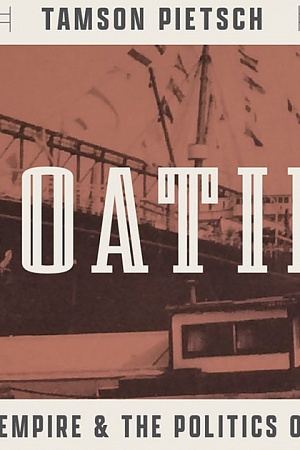Jeremy Bentham and Australia: Convicts, utility and empire
UCL Press, £30 pb, 422 pp
Creative conundrums
On the centenary of Jeremy Bentham’s death in 1932, there was widespread and somewhat macabre interest in the Australian press in the commemorative dinner at University College London, at which Bentham’s famous auto-icon made an appearance as the guest of honour. Some of the more serious commentary sought to educate readers about this ‘human bridge between the thought of the eighteenth and nineteenth centuries’ and more especially about his relationship to Australia. New South Wales was established as an experimental penal colony just as Bentham (1748–1832) was reaching the height of his powers, and could hardly fail to play a dynamic and critical role within his thinking on crime and punishment. Given the origins and nature of the colonies that became Australia’s states, they could not but bear some imprint from the house-philosopher of the Victorian British state, making Bentham, in Judith Brett’s assessment, Australia’s ‘foundational thinker’.
It is perplexing, then, that a diligent bibliographical search just a few years ago for scholarly materials on ‘Bentham’ and ‘Australia’ would have yielded comparatively slim pickings: a handful of articles on Bentham’s attitudes to the developing penal colony, on his works as providing the ballast for anti-transportation arguments and inspiration for the Rum Rebellion, as well as furnishing the blueprint for penal policies and representative democracy. Any search was just as likely to ferret out work dealing with Bentham’s nephew, George Bentham, a celebrated botanist and author of the seven-volume Flora Australiensis (1863–78).
These new books, products of the gargantuan Bentham Project at University College London, are the central planks in a very welcome and accessible corrective. Panopticon versus New South Wales collects Bentham’s scattered works on Australia, with expert editing and contextualisation. The companion volume, taken together with the earlier edition of Memorandoms by James Martin (also edited by Tim Causer) and two recent special issues of Revue d’études benthamiennes, means we now have more than twenty new critical essays on Bentham’s relationship with Australia. Perhaps best of all, the entirety of this work is available in open-access format.
Continue reading for only $10 per month. Subscribe and gain full access to Australian Book Review. Already a subscriber? Sign in. If you need assistance, feel free to contact us.















Leave a comment
If you are an ABR subscriber, you will need to sign in to post a comment.
If you have forgotten your sign in details, or if you receive an error message when trying to submit your comment, please email your comment (and the name of the article to which it relates) to ABR Comments. We will review your comment and, subject to approval, we will post it under your name.
Please note that all comments must be approved by ABR and comply with our Terms & Conditions.